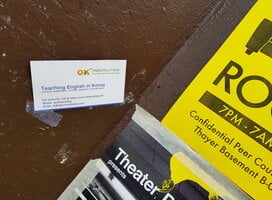Teach English to Pre-Schoolers Abroad
Preschool is an exciting time for young children, as they begin to develop their personalities, gain independence, and discover the world around them. To these young students, everything is new, interesting, and an opportunity to have fun. Preschool children are playful, enthusiastic, and above all, full of energy!
Teaching preschool can be very rewarding for educators. Young students soak up information like little sponges, and it is amazing to see how much your little ones grow in such a short time! Preschool teachers help their students to learn new skills, develop their motor skills, and become confident in themselves. In preschool, you get a lot of bang for your teaching buck!
There are three main approaches to preschool education. All three philosophies originated in Europe in the early to mid-twentieth century, yet each one remains a prominent approach to learning in both Europe and the United States. Note that there are a number of other approaches to teaching preschool students.
Reggio Emilia:
The Reggio Emilia Approached was developed by Loris Malaguzzi, a teacher in the villages near Reggio Emilia, Italy, after the destruction of World War II. The philosophy is based on the belief that children are social beings who should be constructors of knowledge and leaders in their own learning journeys. Teachers act as supporters of students’ exploration and investigation, allowing the children to follow their interests, and do not provide focused instruction. Rather, teachers organize long term, open-ended projects, asking questions to scaffold learning, but otherwise remaining largely unobtrusive to the learning process. Such projects allow for deep exploration and collaboration, which foster meaningful relationships between students and their peers, teachers, community, and the
environment. Parents are seen as active partners in the child’s learning, and are highly encouraged to participate in the classroom.
Montessori:
Maria Montessori, Italy’s first female physician, began the first Montessori program teaching children with disabilities in the slums of Rome. Montessori believed in a child’s natural intelligence and believed they sought sensory experiences, movement, order, and freedom to choose activities and explore them deeply without interruption. In a Montessori classroom, children are free to choose activities that capture their interest and to work at their own pace.
Teachers act as a guide, helping each child to develop confidence and self-discipline and avoid interrupting a child who is engaged in a learning activity. Montessori classrooms include multi-age groups, and teachers receive special training in the Montessori method.
Waldorf:
Rudolf Steiner, an Austrian scientist and philosopher, opened the first Waldorf school in Stuttgart, Germany after World War I. Steiner believed young children (under seven years old) learned through imitation and doing. Therefore, imaginary play is the main vehicle through which children learn in the Waldorf classroom. Lessons focus on physical exploration, creative play, and oral language (through stories and songs).
Teachers take on a performance role, leading whole group activities and modeling appropriate behaviors. Waldorf teachers seek to create a harmonious atmosphere, thereby instilling in their students a sense of caring for people and the environment. There is great emphasis on oral listening and memory rather than on a structured curriculum.
Lesson Planning for Teaching Preschool
Anyone who has ever spent time with a child under the age of five knows that they are naturally curious little people. This curiosity lends itself to great enthusiasm in the classroom, but also short attention spans.
When planning lessons and activities, teachers must keep in mind that students’ developing brains can focus only on one task at a time and for only five to ten minutes at a time (older students can handle a little more). Start with basic concepts and build on them over time. Be sure to include many breaks within and in between lessons, and make them as physical as possible.
Children at this age do not think abstractly; they must feel, move, and manipulate, so allow them to explore toys, tools, and their environment before using them in a lesson. Not only does this satisfy their curiosity and need to play, but also develops their motor skills, which sets the stage for writing later.
Like adults, preschool children learn in different ways. Be sure to plan well-rounded lessons that address various learning styles; all children will benefit from the variety of activities. In turn, you will be able to observe how each of your students learns and can then tailor your instruction to meet their individual needs.
Additionally, students of this age range desire structure and predictability, which allows them to feel safe and helps to internalize what they are learning. For a period of time, sing the same songs and use the same routines daily. Once these become second nature to the children, slowly introduce new songs and routines to keep them interested and focused. Teach rules and routines in a fun way, incorporating songs and games, but also make sure that you are firm, yet gentle in your delivery.
Tips for Teaching Abroad:
You’ve received your degree or certification. You feel confident you know how to teach, and you are excited to go abroad to meet your new students. Congratulations! You are about to embark on an incredible journey! But before you get started in your classroom, take some time to learn what is expected of you by employers, coworkers, and peers in your new home country. Cultural expectations differ by country, and even regions within each country, so be sure to do a little research before leaving home:
- What is the teaching philosophy in your new school? Is it one of the main approaches described above? What will your role be in the classroom? How are you expected to interact and communicate with your students, parents, and coworkers?
- Are you aware of local etiquette? How are you expected to act (and not act) at school or out in the community? Familiarize yourself with local customs.
- Does your new school have a dress code? In some places, teachers are allowed to dress casually, whereas others expect teachers to wear business attire to school. Be clear on what clothing is acceptable. Jeans may or may not be allowed, and some colors or styles may be frowned upon.
- Research taboo subjects and behaviors in your area. Topics of conversation, eye contact (especially in Asian countries), and proper ways to address others often differ around the world. You don’t want to offend someone unintentionally!














